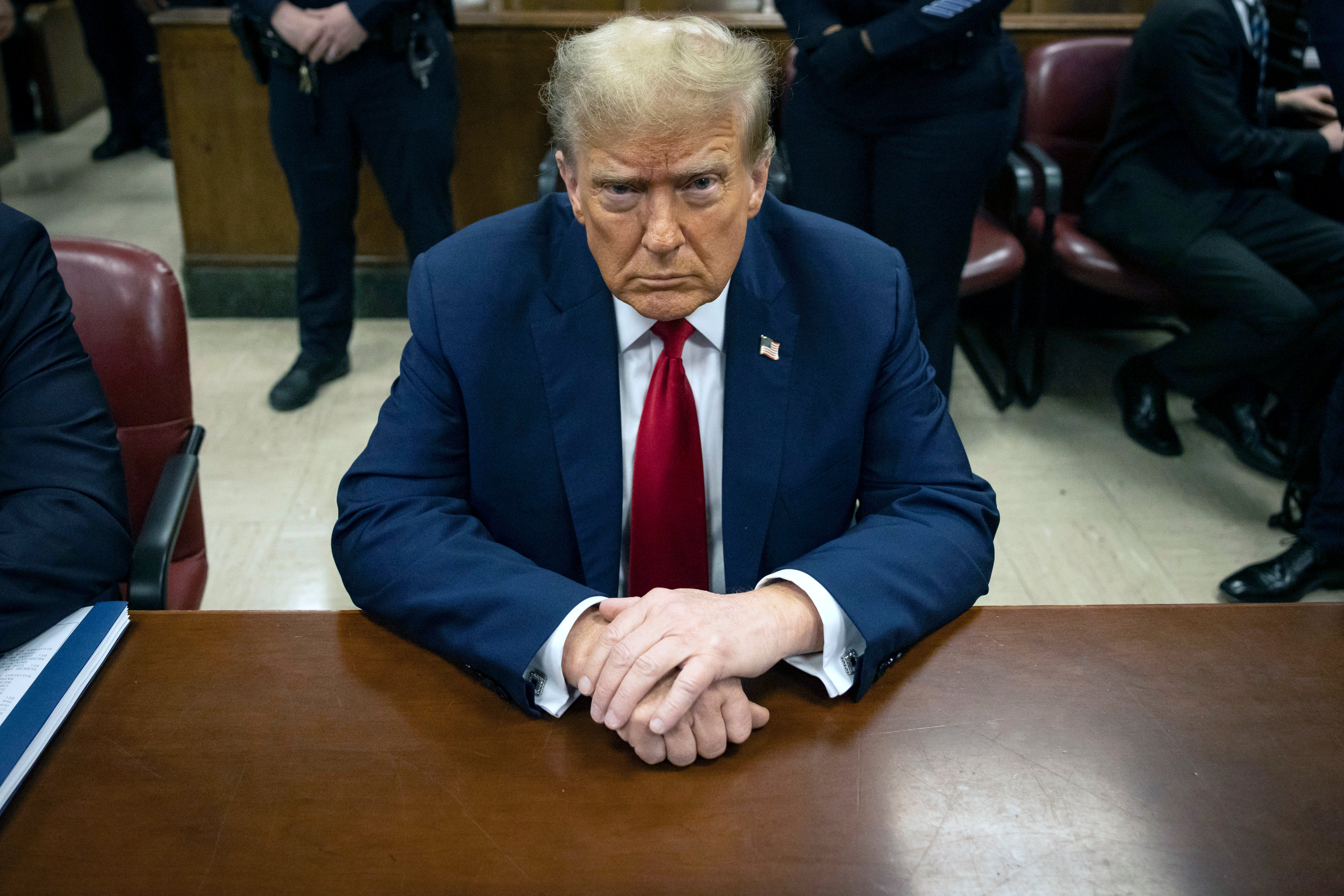Trump’s November sentencing in hush money case now in jeopardy after judge delays ruling on verdict
A jury unanimously voted to convict the former president on 34 felony counts of falsifying business records
Your support helps us to tell the story
From reproductive rights to climate change to Big Tech, The Independent is on the ground when the story is developing. Whether it's investigating the financials of Elon Musk's pro-Trump PAC or producing our latest documentary, 'The A Word', which shines a light on the American women fighting for reproductive rights, we know how important it is to parse out the facts from the messaging.
At such a critical moment in US history, we need reporters on the ground. Your donation allows us to keep sending journalists to speak to both sides of the story.
The Independent is trusted by Americans across the entire political spectrum. And unlike many other quality news outlets, we choose not to lock Americans out of our reporting and analysis with paywalls. We believe quality journalism should be available to everyone, paid for by those who can afford it.
Your support makes all the difference.The judge overseeing Donald Trump’s historic hush money trial is delaying a ruling on whether to toss out a verdict after the Supreme Court’s landmark “immunity” ruling.
A decision on Tuesday from New York Justice Juan Merchan, a week after Trump’s victory in the 2024 presidential election, adds yet another delay to proceedings in a case that resulted in his 34-count criminal conviction.
Merchan was scheduled to issue a ruling on Trump’s “immunity” argument on Tuesday.
Instead, he told Trump’s lawyers he will delay a decision until November 19.
Merchan initially moved his decision on the “immunity” question until after Election Day “to avoid any appearance” of political interference.
Trump was scheduled to be sentenced on November 26. That will also be put on hold for now.
According to emails filed in court, the president-elect’s attorneys asked for a delay in the days after he won the presidential election, arguing that throwing out the case is “necessary to avoid unconstitutional impediments to President Trump’s ability to govern.”
In response, Manhattan prosecutors asked the court to adjourn the upcoming scheduled dates “to afford the People time to assess these recent developments” and to make their arguments about “appropriate steps going forward.”

On May 30, a jury found Trump guilty of falsifying business records in connection with a scheme to silence adult film star Stormy Daniels, whose story about having sex with Trump threatened to derail his 2016 presidential campaign.
Trump’s then-attorney Michael Cohen paid Daniels $130,000 for the rights to her story; Trump repaid Cohen in a series of payments, including in checks signed from the White House in the early months of his presidency, the true nature of which were concealed in the Trump Organization’s accounting records.
Those reimbursements were falsely recorded in accounting records as “legal expenses.”
Trump — whose campaigns relied on a narrative of political persecution and retribution against a justice system he accuses of conspiring against him — continues to insist he has done nothing wrong.
The Supreme Court’s decision partially shields Trump and any other presidents from criminal prosecution for actions considered “official” duties while in office, and provides a presumption of “immunity” for acts in the “outer perimeter” of those “official” duties.
There is no immunity, presumptive or otherwise, for a president’s “unofficial” acts, according to the Supreme Court.
Hours after the Supreme Court’s ruling on July 1, Trump’s attorneys argued in a 50-page filing in Manhattan criminal court that several pieces of evidence used against him at trial fall under the scope of the high court’s decision.
That “impermissible official-acts evidence” includes Trump’s conversations with a White House aide, phone records from his time in office, and posts on Twitter, which was “recognized as a formal channel of White House communication in the Trump Administration,” according to Trump’s attorneys.
“No President of the United States has ever been treated as unfairly and unlawfully as District Attorney Bragg has acted towards President Trump in connection with the biased investigation, extraordinarily delayed charging decision, and baseless prosecution that gives rise to this motion,” his attorney Todd Blanche wrote at the time.
“Rather than wait for the Supreme Court’s guidance, the prosecutors scoffed with hubris at President Trump’s immunity motion” and “insisted on rushing to trial” before the Supreme Court’s decision.

Blanche argued that Alvin Bragg’s office forced the court to “front-run the Supreme Court on a federal constitutional issue with grave implications for the operation of the federal government and the relationships between state and federal officials.”
“The record is clear: [the district attorney] was wrong, very wrong,” Blanche added.
Manhattan prosecutors urged Merchan to keep the verdict in place, writing in response to Trump’s claims that the Supreme Court’s ruling has “no basis for disturbing the jury’s verdict.”
Trump was a private citizen when he arranged a scheme with Cohen to pay Daniels, they argued.
“For all the pages that defendant devotes to his current motion, the evidence that he claims is affected by the Supreme Court’s ruling constitutes only a sliver of the mountains of testimony and documentary proof that the jury considered in finding him guilty of all 34 felony charges beyond a reasonable doubt,” Assistant District Attorney Matthew Colangelo wrote in a 69-page response.
